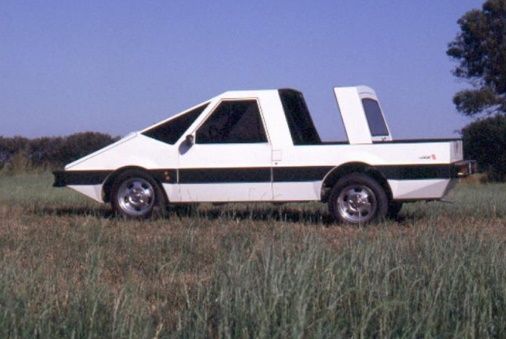When the electric car HOPE Whisper crashed into the barriers at its press presentation at the Forum Exhibition Centre in Frederiksberg on 14 October 1983, the result was a write-off not just for the sole copy of the Danish-made automobile but any dreams of its success.
The PR fiasco is remembered as one of this country’s enduring images of the 1980s, along with the launch of TV2, Crown Prince Frederik turning 18, bleached denim and blue eye shadow. But for the country’s visionaries, it turned the very real idea of creating a wholly Danish car into a national bad joke.
A long-held tradition
In fact, cars have been manufactured in this country almost since the invention of the automobile, albeit in meagre amounts.
From AL Brem’s factory in Viborg in north Jutland, eight different auto models were produced between 1888 and 1908. Factory owner Julius Brems, who took over his father’s machine works in 1879, was nothing if not determined – during the first car’s first test drive on 4 June 1900, the car’s motor stalled and was only started again by a helpful soldier who happened to be on his way home.
While the Brem factory never managed to find the success it sought, the city of Viborg was determined to make automobile history sooner or later. Johannes Pedersen (1929-1992) may have been trained as a grocer, but after decades working as a coach and taxi driver he began producing automobile parts.
At the beginning of the 1980s, Pedersen was suddenly inspired to follow in Julius Brem’s footsteps and tried to bring car production back home to Viborg. Together with local lawyer Thorkild Dahl and design veteran Jacob Jensen, whose work with B&O is now legendary, work on ‘the Logicar’ began.
Everything pointed to success. Technical support was offered by Ford’s factory in the US. National and local media alike reported almost daily during 1985 on the project’s progress, and frequent meetings were held with potential investors in the dream that Viborg would soon become as synonymous with auto production as Detroit.
DK’s Volkswagen
A standard petrol or diesel-run car, Logicar’s uniqueness lay in its lightweight materials. Designer Jacob Jensen claimed the five-seat, fiberglass vehicle could be transformed from an ordinary passenger car into a pick-up truck in a matter of minutes by removing the rear cab section. The rear windows slid into the roof, which was lowered by a spring-loaded telescopic system to become the pick-up’s bed. The rear-window frame, meanwhile, rolled forward to lock into a water-tight connection with the cabin.
The Logicar was billed ‘Denmark’s Volkswagen’. As such, it was important that production stayed on home turf. All such a dream demanded was investment capital of 55 million kroner before the beginning of October 1985. The car had received attention from domestic and foreign politicians, and the then-prime minister Poul Schlüter even said he wanted to take the Logicar on her maiden voyage.
Offers from foreign businesses piled in to produce the car, but this was to be a Danish production. Various Jutland counties vied for the employment and the prestige of being a ‘car city’, but Viborg won out and its municipal council designated an area of the town where the factory would be built.
Despite the hype, investment never came close to the amount needed, and the dream of a car factory in Viborg was never realised. Instead, the town had to make do with being famous for its Champions League-winning women’s handball team.
Detroit dreams dashed
The town of Hadsund, a little ways northwest of Viborg, is a name remembered by very few for any reason whatsoever. But when Thure Barsøe Carnfeldt moved to the sleepy Jutland town in 1971 , he created a name – and hope for the place, literally.
The tale of a young man raised in a children‘s home who went on to become one of the nation’s most determined innovators sounds a little like a fairy-tale. For Barsøe Carnfeldt, however, his dreams of being remembered for the HOPE computer and the HOPE Whisper electric car were shattered on 14 October 1983.
It should have been the high point of a career, not the end of one. The car’s builder was in the driving seat of the car but, having worked around the clock in the week leading up to the presentation, had fallen asleep. In front of 1,000 people and the world’s press, he awoke with a start to drive the sole version of Barsøe‘s electric car head-on into the barriers of the exhibition room floor.
But the story was not over yet: Barsøe was arrested for fraud four years later and sentenced to three and a half years in jail. His company went bankrupt in 1991, closing the lid forever on Hadsund’s dreams of innovation and Denmark’s vision of itself as a new Detroit.












